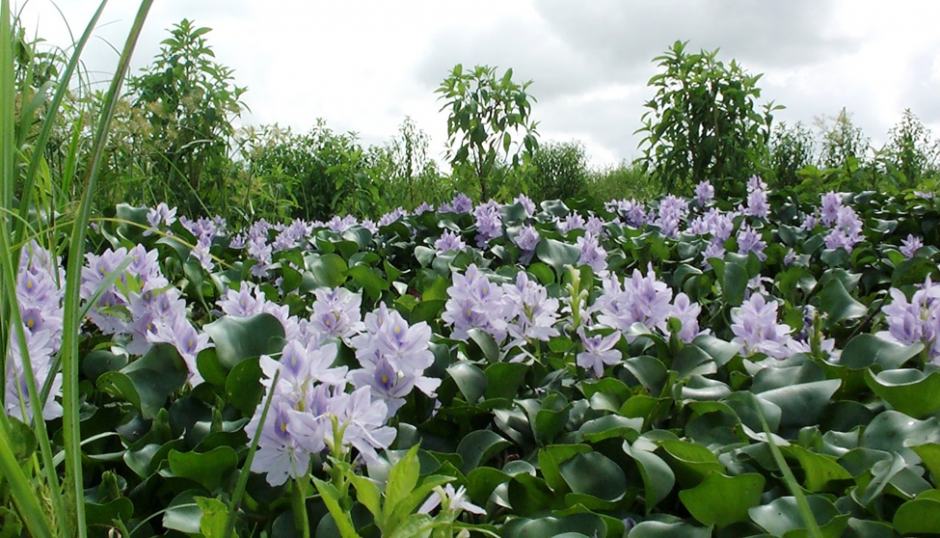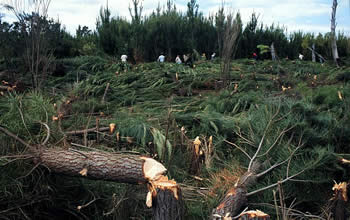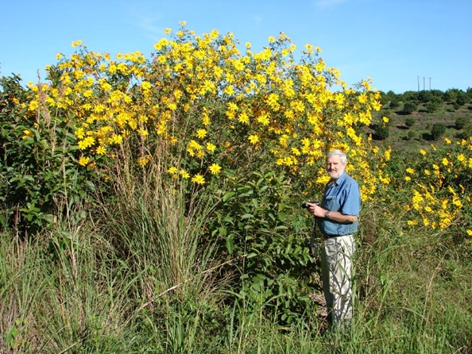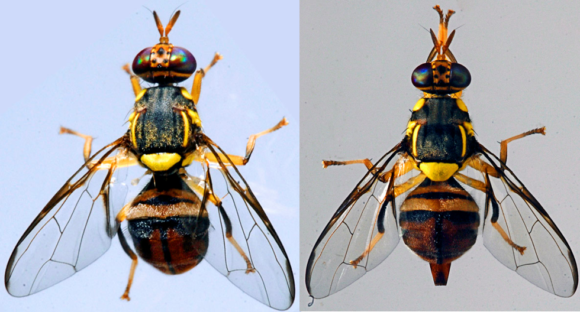Using the Generic Impact Scoring System (GISS) can be a helpful tool for managers to identify invasive alien plant species with high environmental and social impacts. This was one of the findings from a study, co-authored by C·I·B research associate Petr Pyšek, where the Generic Impact Scoring System (GISS) was used to categorize invasive alien plant species in Europe based on their environmental and socioeconomic impacts.
The Generic Impact Scoring System (GISS) that scores defined types of impacts was originally developed for mammals introduced into Europe, but has since been applied to other groups of alien organisms in Europe, for example, birds, amphibians and fish. This scheme has become the basis of a conceptual framework for all groups of organisms.
For their study, the authors evaluated the impact of 128 alien plant species in Europe. Based on information in the literature, their environmental and socioeconomic impacts were assessed and assigned to one of six different categories. In each category, the impact was classified on a five-degree scale, which reflects the intensity of the impact. The authors then used the maximum score recorded for each category and their sums to identify species with the greatest impacts.
They found that environmental impacts are most often manifested as competition with native species (recorded for 83 % of the species), while socioeconomic impacts are associated mostly with human health (78 %).
“We also found that the sums of environmental and socioeconomic impacts were significantly correlated. This means that species with a high environmental impact have specific traits that are also associated with a high economic impact, for example, the aquatic invasive water hyacinth (Eichhornia crassipes)” explains Petr Pyšek, senior author of the paper published in Biological Invasions.

In terms of plant life forms, annual plants have on average lower environmental impacts than perennial plants, and aquatic species have a higher socioeconomic impact than other life forms.
Pyšek commented on the relevance of the study, “Applying the GISS to plants, the most species-rich taxonomic group of alien organisms in Europe, is an important step towards providing managers and policymakers with a robust tool for identifying and prioritizing alien species with the highest impact. It can also serve as an early warning tool, by focusing on species that are not yet widespread in Europe because they arrived only recently or are restricted in their distribution by factors, which may change in the future.”
Read the paper in Biological Invasions
For more information, contact Petr Pyšek at pysek@ibot.cas.cz



